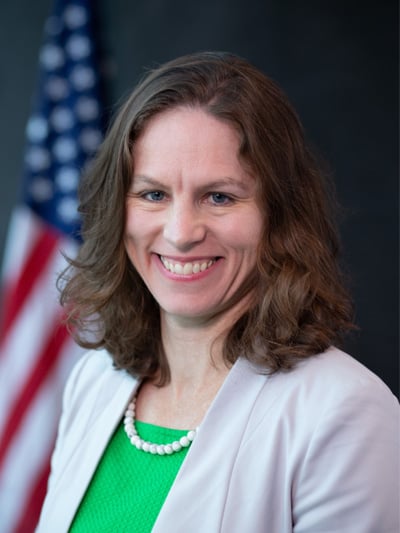Author
This article is part of a series about The Anticorruption Manual: A Guide for State Prosecutors. The other articles in the series are:
- The Anticorruption Manual: Helping State Corruption Prosecutors Fill the Role the U.S. Supreme Court Expects Them to Play
- Section I: Species of Corruption
- Section III: Criminal Corruption Statutes
- Section IV: The Corruption Trial and Common Defenses
- Section V: Ethical & Strategic Considerations in Corruption Cases
- Section VI: Civil & Administrative Enforcement, Asset Forfeiture, & Collateral Consequences of Corruption
In the second section of the Manual, “Investigating Corruption Cases,” authors address many of the investigative tools prosecutors should consider using in corruption cases—including everything from wiretaps to confidential informants to resources available to assist with financial analysis or digital evidence. They also discuss prosecutors’ involvement in the management of complex investigations, transitioning from the covert and overt phases of an investigation, and managing concurrent (or parallel) investigations and cases.
Chapter 2.1: The Prosecutor’s Role in Anticorruption Investigations
Steven P. Solow and Johnjerica Hodge, partners at the law firms of Baker Botts LLP and Katten Muchin Rosenman LLP, respectively, provide practical guidance for prosecutors overseeing an investigation, including why the American Bar Association recommends this oversight. They also address prosecutors’ civil liability for actions taken during an investigation versus those taken during the judicial phase of a case. They explain that only qualified immunity attaches during the investigative phase, while (at least in federal courts) prosecutors are entitled to absolute immunity during the judicial phase of a case.
Chapter 2.2: Timing of Covert & Overt Aspects of the Investigation
Morrison & Foerster LLP partner Carrie Cohen, who was both a federal and state corruption prosecutor earlier in her career, discusses factors prosecutors should consider when overseeing covert and overt aspects of an investigation. She includes some investigative tools prosecutors might consider using and provides tips about how to carefully handle the transition from the covert to overt stages of an investigation.
Chapter 2.3: A Practitioner’s Guide to Wiretaps in Public Corruption Investigations
Wiretaps may be more commonly associated with organized or violent crime, but a chapter by former local and state prosecutor Wesley Cheng provides examples of their deployment in corruption cases. He also details legal requirements for wiretaps at every stage: obtaining authorization, monitoring, sealing, and providing notice to targets and others.
Chapter 2.4: Tools for Obtaining Online Evidence
U.S. Department of Justice’s International Computer Hacking & Intellectual Property Attorney Advisor for Internet Fraud and Public Health Michael Chu draws on his years of experience as a federal prosecutor to provide guidance about obtaining online evidence. In this chapter, he covers everything from preservation requests (both foreign and domestic), to obtaining evidence using the Electronic Communications Privacy Act—including what can be requested using a subpoena, an order pursuant to 18 U.S.C. § 2703(d), or a search warrant. He also includes practical information about how to serve internet service providers with process, introducing records at trial, and when and how to request a nondisclosure order.
Chapter 2.5: Working Effectively with an Undercover Officer, Confidential Informant, or Cooperating Witness
Stacy P. Aronowitz, counsel to the criminal division of the New York Attorney General’s Office, and Daniel G. Cort, first deputy commissioner of the New York Department of Investigation and former state and local corruption prosecutor, address ethical, legal, and logistical issues in covert investigations. Their chapter includes both success stories and cautionary tales, and they provide guidance about how to determine if this powerful investigative tool is appropriate and how to deploy it effectively and ethically.
Chapter 2.6: Attorney General Office Cooperation with Federal & Local Partners When Investigating & Prosecuting Public Corruption
Two Colorado Attorney General’s Office prosecutors share practical guidance about how, when, and why to form cross-jurisdictional partnerships. Robert Shapiro, first assistant attorney general, Special Prosecutions Unit, and Daniel Pietragallo, senior assistant attorney general, Financial Fraud Unit, highlight the unique role that an attorney general’s office can play in both investigating corruption cases and centralizing and coordinating task forces or similar investigative bodies.
Chapter 2.7: Forensic Assistance Resources
Christine Hoffman, the acting prosecutor of Gloucester County, New Jersey, shares a comprehensive overview of assistance and resources available to prosecutors and other law enforcement agencies carrying out complex financial investigations. She details federal government-funded entities equipped to assist with financial analysis and with digital forensics.
Chapter 2.8: Concurrent Investigations Involving Criminal, Civil, & Administrative Authorities
Idaho Attorney General’s Office First Deputy Attorney General Brian Kane and former Deputy Attorney General Brenda Bauges, who is now a dean at the University of Idaho College of Law, address concurrent (sometimes referred to as “parallel”) proceedings. They catalog issues and opportunities that can arise when the same underlying conduct is addressable in criminal, civil, and/or administrative proceedings. In addition to providing practical guidance about managing concurrent investigations and cases, the chapter also discusses some of ethical issues that can arise—including disclosure issues for prosecutors and confidentiality issues for civil attorneys—particularly when the same office has oversight over multiple types of cases.
The goal of Section Two of The Anticorruption Manual is to help readers understand:
- Benefits and risk to prosecutors of overseeing corruption investigations.
- When to transition from investigative tools that are unlikely to alert the target of the investigation to using more overt techniques.
- Investigative tools and resources to consider, including wiretaps, online evidence, and resources available through various governmental and non-governmental entities.
- How to ethically and effectively oversee undercover investigations involving covert actors.
- Opportunities and challenges inherent in concurrent (or parallel) investigations and the resulting cases.
The next article in this series will discuss federal and state statutes most often used to charge corruption cases.



